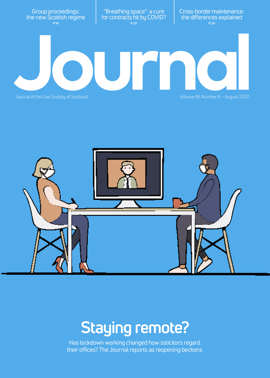Reading for pleasure: August 2020
Twilight of Democracy: The Failure of Politics and the Parting of Friends
Anne Applebaum (Allen Lane: £16.99; e-book £9.99)
The author is a recognised authority on the history of Central European society. This is a timely, informative and reflective book. It is said that families and friendships were damaged, sometimes irretrievably, due to the vote cast. This book opens with a party held by the author and her husband (a member of the Civic Platform Polish party, former minister and current MEP) at their home in Poland on the eve of the millennium. That group of politically aware and liberal minded individuals discuss what lay ahead: Poland's entry to the EU, a member of NATO, Yeltsin's resignation.
Applebaum would now cross the street rather than talk to some of those who were at that party. This book carefully, with ease and elegance, explores the question facing many politicians around the globe: the rise of populism, its cause and effect. Applebaum forensically examines the politicisation of the press and national institutions (universities, museums to science institutes) and the blurring of the rule of law in Poland and Hungary. She examines the exploitation of the “idea of the Big Lie”, around which a nationalist narrative is built and developed: in Poland, it is the downing of the presidential aircraft at Smolensk en route to a memorial to the Katyn Woods massacre; in Hungary, it's the perceived influence of George Soros. The current UK Prime Minister, a friend of the author's husband, nor her former colleagues at the Spectator are spared her analysis. She considers why people are persuaded to adopt and engage with the narrative of populism and consider both “reflective nostalgics” and “restorative nostalgics”: the former like the past; the latter seek its restoration and perceived comfort and familiarity. There is a sense of foreboding and little optimism.
It would have been interesting to read the author's view on how (and whether) the European institutions can influence the apparent upward trend of nationalism. An important and insightful book.
The Curious Case of Maggie Macbeth
Stacey Murray (Red Door Press: £8.99; e-book £2.99)
This warm hearted book is written by former solicitor Stacey Murray, who, like her fictional character, once plied her craft in commercial law in London and Hong Kong. Maggie Macbeth hails from Glasgow where her mother, with whom she has a strained relationship, still lives. On losing her job in Hong Kong, Maggie retreats to live with a friend, Cath, in the Peak District village of Archdale. There village life, in all its painful and amusing ways, unfolds with Maggie being, initially, bewildered and unimpressed. Cath, estranged from her husband and unaware of her daughter being bullied, is eventually exasperated with Maggie, as she slips deeper into a slump. However, a stint running the local pub, seeing the villagers rally to her, and a local farmer's aid, offer an uplifting insight. She dips her toe back into court. A gentle book, one to settle down with after (another) fraught day of homeworking and switch off from our current, constrained circumstances.
The Wyndham Case
Jill Paton Walsh (Hodder & Stoughton: £9.99; e-book £4.99)
This is the first in a quartet of books republished by Hodder. Imogen Quy (pronounced like why) is a nurse for the students of St Agatha's College, Cambridge. Philip Skellow (not Skelly as the back cover of the book discloses) is a student at St Agatha's who is found dead in the locked Wyndham library. Later, another student turns up dead in the fountain. The police meet a wall of silence and Imogen is called upon by Mike, the inspector in charge of the investigation, to tease what she can from the students and encourage them to speak with the police to assist them to uncover the murder of Philip. The story gently unfolds in a warm and engaging style, not unlike the crime writers of a bygone age. Despite first appearances, Imogen is 30 years old and has a soft spot for both Mike and Roger Rumbold, the librarian. Add to this mix her student lodgers together with Professor Wylde and his missing priceless text, and one has a narrative worthy of Tom Sharpe. A gem.
Regulars
Perspectives
Features
Briefings
- Criminal court briefing: Coronapocalypse?
- Employment: Unfairly anonymous?
- Family: When experts miss the mark
- Human rights: Judicial review refusal does not need oral hearing
- Pensions: Members' benefits: compensation and protection action
- Scottish Solicitors' Discipline Tribunal
- Property: Code to recovery
- In-house: “So, how are you?”






